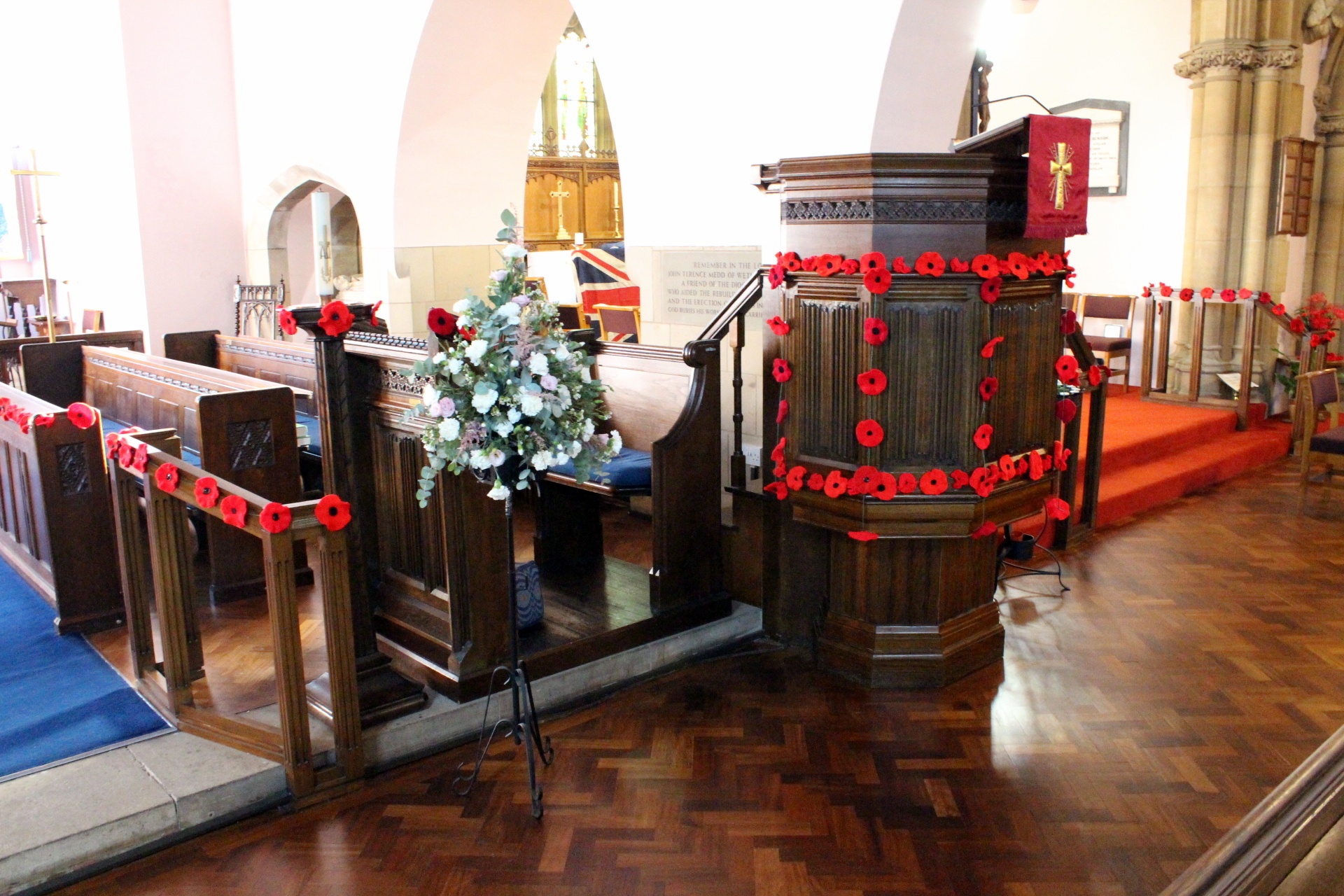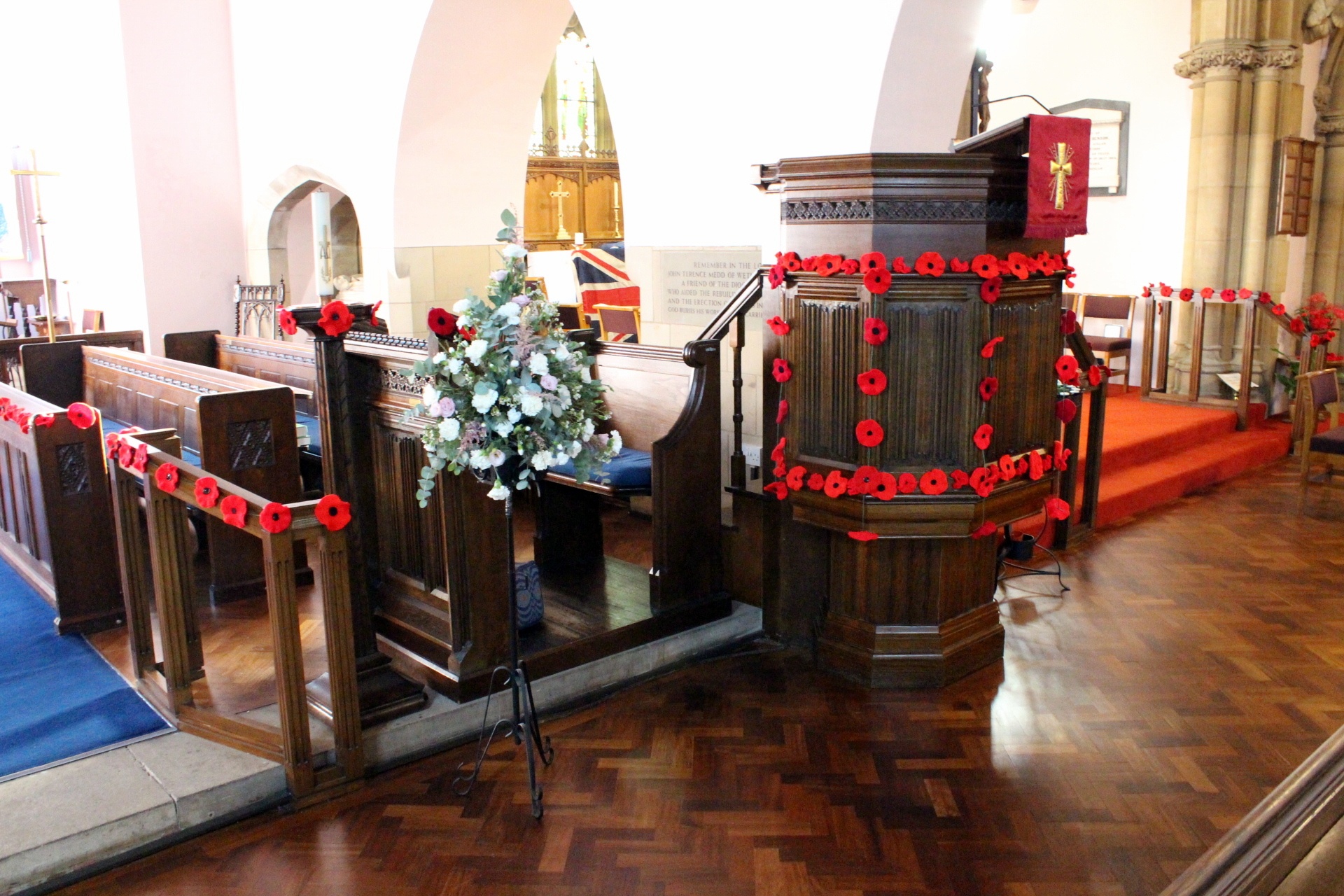December Magazine 2025

NOTE FROM THE EDITORS
Despite one of us spending three weeks in November in California (visiting family) and with a time difference of eight hours…. we have managed somehow to coggle together a December magazine for you!
November has been quite a stressful and sad month with three of our congregation passing away within weeks of each other. Our condolences go to the families of Brian Marchant, Brenda Thompson, and Ann Bowater.
As Christmas approaches (as we write it is only 25 days away!!) and wherever you go Christmas ‘songs’ are blaring out, remember that the church will be having services depicting the true meaning of Christmas, not the commercial one!
There will be a simple Carol Service for all on Sunday 21st December at 3.00pm, a Christingle Service which is suitable for children, at 6.00pm on Christmas Eve, Midnight Mass at 11.30pm Christmas Eve, and on Christmas Day Parish Communion is at 10.00am.
A Christmas Coffee Morning will take place in church on Wednesday 10th December from 10am until 11.30am to which you are all welcome.
There is also a Christmas Concert in church on Sunday 7th December at 3.00pm given by Vox Choir, which will have some lovely Christmas music to suit all tastes.
All the above can be found on our Diary page..
May we thank you all for continuing to read our online magazine, and especially those who have submitted articles over the last year. This is something we very much welcome, so if you feel inclined, please send them in!
We wish you all a very Happy and Blessed Christmas.. and a Peaceful New Year..
Pauline & Bob - co-editors..
Updated 1st December 2025
_________________________________________________________
Archbishop Designate, Sarah Mullally, sets out her hopes for the Church
Shortly after the announcement of her nomination as the next Archbishop of Canterbury, Bishop Sarah Mullally delivered an address at Canterbury Cathedral, reflecting on her calling, the challenges facing the Church, and her hopes for its future.
Rooted in her early vocation as a nurse and shaped by her ministry in London, she spoke of “washing feet” as a guiding image of Christian service, and of finding hope in the quiet faithfulness of churches, chaplaincies, and communities across the Anglican Communion.
She addressed the Church’s responsibility in safeguarding, the need to confront power dynamics, and the importance of standing against hatred and antisemitism.
She said she would seek to be “a shepherd who enables everyone’s ministry and vocation to flourish,” and expressed her desire to nurture confidence in the Gospel. “Held fast by the Lord’s hand,” she concluded, “please pray for me as I will pray for you.”
_________________________________________________________
Update on Living in Love and Faith
The House of Bishops has recently made a series of key decisions on the future direction of the Church of England’s Living in Love and Faith process, which explores questions of relationships, sexuality and marriage. Final decisions will be taken in December.
At its residential meeting, the House reviewed detailed theological and legal advice on outstanding questions following the landmark 2023 Synod vote which led to the introduction of the Prayers of Love and Faith (or PLF).
The PLF are a set of prayers, readings and liturgical material which, for the first time, enable same-sex couples to come to church for public prayers of dedication, thanksgiving and asking for God’s blessing as part of a regular church service.
Since then, the Church has been exploring whether special ‘bespoke’ services using the PLF could be introduced and whether clergy could legally enter into same-sex marriages.
There has also been extensive consideration of possible new arrangements for how the Church is organised including so-called ‘Delegated Episcopal Ministry’.
The bishops reviewed advice both from the Church of England’s Legal Office and the Faith and Order Commission (all of which will be published in due course). While final decisions will be made by the House in December, the bishops agreed in principle that both bespoke service and clergy same-sex marriage would need formal synodical and legislative processes to be completed before they could be permitted.
As a result, they also concluded there is currently no need for a new code of practice setting out special arrangements such as Delegated Episcopal Ministry.
Although there remains a wide range of views within the House on questions of sexuality and relationships, there was strong consensus on the need for unity, transparency and proper process alongside pastoral care. Despite personal convictions across traditions, the House of Bishops recognised these were the procedural realities to effect any future change.
The Archbishop of York, Stephen Cottrell, chair of the LLF Programme Board, commented: “As we continue prayerfully to navigate this important work on behalf of the Church, we believe these are the right decisions following further legal and theological advice.
“However, we recognise that for some, they will be difficult and disappointing. I continue to pray for God’s grace and gentleness for all as we continue to discern a way through these questions.”
_______________________________________________________
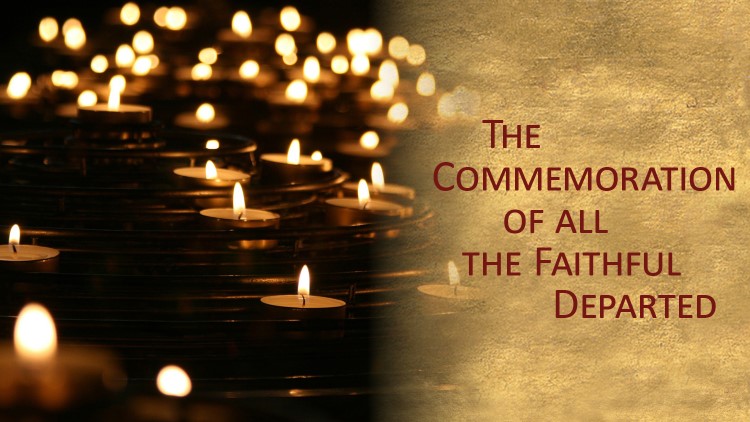
R.I.P
During November we have lost three faithful members of our congregation.
Brian Marchant 4th November
Brenda Thompson 12th November
Anne Bowater 16th November
They will all be sadly missed.
May they rest in peace, and rise in glory
_________________________________________________

CONFIRMATION
On Sunday 14th December we are pleased to have several candidates coming forward for Confirmation by 'The Bishop of Whitby' at two separate services, 9.00am and 10.30am.
We congratulate them all, and wish them well in their continued journey in faith.
_________________________________________________________

A NEW BABY !!
Wyn Hirst has become a Grandma!!! On Tuesday 18th November her daughter, Susanne, who most of the congregation will remember, gave birth to a baby girl, Francesca Eloise. weighing in at 7lb 4oz.
To say Wyn is over the moon, is a bit of an understatement!!
Congratulations to Wyn and the family, from all your friends at St Mary’s.
___________________________________________________

December Diary Page
Holy Communion service each Sunday at 9.00am (Said BCP service)
Sung Eucharist each Sunday at 10.00am (Common Worship)
Holy Communion each Tuesday at 10.00am (Said BCP service)
Said Evening Prayer each Sunday at 6.30pm.
BIBLE STUDY (via ZOOM) EVERY WEDNESDAY AT 7PM DURING TERM TIME.
PRAYER MEETING FIRST MONDAY IN THE MONTH 7pm IN CHURCH
SATURDAY 6th DECEMBER
9.30am Churchyard tidy / Church cleaning
SUNDAY 7th DECEMBER
ADVENT 2
10.00am Parish Communion
3.00pm VOX CHRISTMAS CONCERT
SUNDAY 14th DECEMBER
ADVENT 3
CONFIRMATION with The Bishop of Whitby
9.00am CONFIRMATION SERVICE 1
10.30am CONFIRMATION SERVICE 2 (please note the different time)
6.30pm Evening Prayer
WEDNESDAY 10th DECEMBER
Coffee Morning 10am -11.30am
SUNDAY 21st DECEMBER
ADVENT 4
9.00am Holy Communion
10.00am Parish Communion
3.00pm COMMUNITY CAROLS
6.30pm Evening Prayer
TUESDAY 23rd DECEMBER
10.30pm Making of Christingles
WEDNESDAY 24th DECEMBER
CHRISTMAS EVE
6.00pm CHRISTINGLE SERVICE
11.30pm MIDNIGHT MASS
THURSDAY 25th DECEMBER
CHRISTMAS DAY ONE SERVICE ONLY
10.00am Parish Communion
SUNDAY 28th DECEMBER
HOLY INNOCENTS
9.00am Holy Communion
10.00am Parish Communion
____________________________________________________________________

ADVENT STUDY
This year the Advent Study course will take place on:
Tuesdays 9th, 16th and 23rd December…. All at 7pm on Zoom Please contact the Vicar for the Zoom link.
The Church of England’s Advent theme for 2025 is the Advent antiphons. Advent antiphons originated in the early Middle Ages and have been used by generations of Christians since then.
In this study we look at some of these antiphons and reflect on how they are shaping our understanding of Advent.
The Vicar also intends to hold an afternoon session of an hour and a half for those who would like to have face to face study. If you are interested in this, please see her to arrange a convenient time for the session.
________________________________________________
A REMINDER!!! CHRISTMAS CONCERT
On Sunday 7th December at 3.00pm, there will once again be a Christmas Concert in church given by Vox Choir North East.
An afternoon of Christmas music to suit all tastes followed by coffee/tea and mince pies.
This proved to be very popular last year and a lovely way to get into the Christmas spirit.
If you haven’t heard this group of singers before, come along, you won’t be disappointed!
Tickets - £10 (under 18’s free) can be purchased at the door (cash or card accepted)


CHRISTMAS COFFEE MORNING
On Wednesday 10th December there will a Christmas Coffee morning in church.
Entrance is £2.50 which includes tea/coffee and mince pies.
There will be the very popular Cake Stall (if anyone would like to contribute some Christmas goodies it would be appreciated!)
A Christmas Raffle should produce some extra special prizes….
Beautiful Handmade cards will be on sale.. including some rather lovely Christmas cards. And there will be a second-hand bookstall to peruse.
Come along and bring your friends to enjoy some Christmas atmosphere and music.. and at the same time raise funds for the church.
________________________________________________________

CHRISTINGLE SERVICE
This year the Christingle Service will take place at 6.00pm on Christmas Eve.
Bring the children to listen to the Christmas story, sing Christmas carols, and in return for a donation to the work of The Children’s Society, receive a Christingle orange.
Always popular, this is a lovely way to start your Christmas festivities.
_____________________________________________

The Ven John Barton explains the meaning of the colours of the vicars’ stoles.
Why is the vicar wearing white today?
You may have noticed that the Minister who officiates at Church Services may wear a long, thin scarf which is called a stole. This can be white, purple, red or green.
White is for festive occasions like Christmas and Easter, christenings and weddings. Purple is worn during Advent and Lent, when we bring to mind our sins and seek God’s forgiveness, in preparation for the wonderful seasons of Christmas and Easter. Red at Pentecost, symbolises the fire of the Holy Spirit, and on Saints Days it signifies that many of them (and some today) were martyred because they were Christians. Green, marking growth and hope is worn for the rest of the year.
So, white for ‘best’, purple for penitence, red for the Holy Spirit and the blood of the Martyrs, and green for growth.
You will also spot the same changing colours for items on the Altar-Table at the beginning and end of the Service of Holy Communion. The Burse is a flat, square case holding a linen cloth called the corporal, on which the vessels used in Holy Communion are placed. The Veil covers them until they are used.
The vessels are called Paten and Chalice. The Paten is like a plate on which the bread is placed. A bowl, called a Ciborium, may be used for the same purpose. The Chalice is a cup for the wine. Because the bread and wine represent the Body and Blood of Christ, which He sacrificed for us when He was crucified, we handle them with care.
The minister’s ceremonial robes, called vestments, and the vessels all point to something greater. In one of St Paul’s letters in the New Testament, he explains in these words that receiving the Sacrament of Holy Communion has past, present and future significance: “For as often as you eat this bread and drink the cup, you proclaim the Lord’s death until he comes.”
_____________________________________________________
Editor: The Revd Dr Jo White considers reading the gospel in church
Reflecting Faith: Listening to the Gospel
One of the highlights of the Christmas services is the reading of the opening passage from John’s Gospel, ‘In the beginning was the Word …’
I love the poetry of the words and sentences, as well as their very meaning. In most churches everyone will stand for that reading, which emphasises its importance. But what makes it important?
Most gospel passages that are read in church include the words of Jesus Himself, handed down to us over the centuries, but here there are none. Rather, this is the defining statement of who Jesus is and where He came from.
The way that the gospel readings are valued by the Church can be seen in our church buildings over the years. In older churches you will find two lecterns, one either side of the central altar. The right-hand side is for the Old Testament and epistle readings, and the left-hand side lecturn (as the congregation faces the altar) is for the gospel reading.
On the altar, the holder for the priest’s book was physically moved to that side, so that as he read out the gospel he would be facing the northern side of the church. Traditionally that was the colder, darker side, thought to be ‘least’ holy and therefore in need of the gospel most.
Nowadays all readings may be given from the same place at the front of church, though in some churches the gospel book will be processed with or without candles, into the centre of the congregation, to bring us all gathering around Christ’s words.
It is because of this absolute importance of the gospels that people face the gospel, so as it is processed, they move their body and heads towards it. This will leave some people with their backs to the altar for that time, but it is the ‘Word made flesh’ that we honour.
This month: This year during the Christmas season, listen out for that wonderful passage from John chapter 1 and consider how and where from it is being read and how that reflects the faith of the congregation you are within.
___________________________________________

by Tony Horsfall, a Bible teacher and conference speaker.
And there were Shepherds
In his gospel, Luke tells how the shepherds in the fields were keeping watch over their flocks when they were terrified by the sudden arrival of heavenly angels, surrounded by the glory of the Lord. And the message of the angel that night has rung down the centuries:
“I bring you good news that will cause great joy for all the people. Today in the town of David a Saviour has been born to you; he is the Messiah, the Lord. This will be a sign to you: You will find a baby wrapped in cloths and lying in a manger.” (Luke 2:10,11)
And so, the first people to greet the Saviour were not rich VIPS, but humble shepherds. And in turn, it was the shepherds who became the first evangelists: for they would have gone home to their families and neighbours that night with the amazing news of what they had seen.
Meanwhile, for Mary there followed a time of reflection. She gathered up in her mind all her impressions, and all that the shepherds had shared about the angelic visit. She knew it was treasure, and not to be squandered. Then she quietly pondered in her heart the meaning and significance of all that had happened, so that she would never forget.
Exuberant witness and quiet contemplation are not opposites. They are, in fact, good companions in the spiritual life!
So, this Christmas, let’s be filled with the joy that the Saviour has also been born ‘to us’. May our lives reflect the glory of His coming, even in a small way. May our interactions with friends, colleagues and families during this Advent season reflect the great joy that the angels brought that night, so long ago.
_________________________________________
Theological colleges face critical drop in residential students
The number of C of E ordination candidates entering residential training has fallen from 218 to 65 in the decade to 2024. Seven of the ten colleges had fewer than ten new students at the beginning of the last academic year.
_______________________________________________
Canon Paul Hardingham considers the Christmas story.
Christmas Unwrapped!
All of us have received unwanted gifts at Christmas. For Joseph the gift of a child, as recorded in Matthew chapter 1, was not something he really wanted. Although he was engaged to Mary, her pregnancy would be grounds for divorce. Not surprisingly, with the associated social disgrace, Joseph wanted to divorce Mary quietly (Matthew 1:19). However, God intervened in a dream: ‘The virgin will be with child and will give birth to a son, and they will call Him Immanuel, which means, God with us.’ (1:23). In a scary and uncertain world, what does the message of Immanuel say to us today?
God is present with us
God assured Joseph that He was working in all that Joseph was going through. The eternal and creator God entered time and space as a baby. This baby is both uniquely divine but also fully human. This means that we can know God personally, not just know about Him. The Holy Spirit is committed to making Jesus’ life and character real in us, and bringing meaning to our circumstances, just as He worked in Mary’s life.
God is on our side
Christmas touches some raw nerves in our lives, including stress, family rows, loneliness and financial pressures. However, God does not remain aloof from our experiences. In Jesus He enters our world of hopes and fears, joys and disappointments. He understands what we are going through, as He is alongside us. By the cross and resurrection, He gave His life that we might know His love, joy, peace and forgiveness.
For Joseph, as well as us, the Christmas message is one of hope in an uncertain world. It is a time to re-consider the claims of Immanuel (‘God with us’) as we entrust ourselves to Him for the coming year.
___________________________________________

December Crossword
Across
1 Provisional meeting place of God and the Jews (Exodus 25) (10)
7 David’s third son (2 Samuel 18) (7)
8 They ruled much of the west coast of South America in the 15th
and early 16th centuries (5)
10 Small deer of European and Asian extraction (4)
11 Seized control of (Numbers 21) (8)
13 Terror (Luke 24) (6)
15 First World War heroine Nurse Edith …. (6)
17 Stormy (8)
18 A bitter variety of this was the Passover menu (Numbers 9) (4)
21 Arson (anag.) (5)
22 How John Newton described God’s grace in his well-known hymn (7)
23 Habitation (Isaiah 27) (10)
Down
1 …. and see that the Lord is good (Psalm 34) (5)
2 But the righteous are as … as a lion (Proverbs 28) (4)
3 One of the exiles, a descendant of Parosh, (Ezra 10) (6)
4 He escaped from Nob (1 Samuel 22) (8)
5 City and lake in Central Switzerland (7)
6 Offer your bodies as living …. , holy (Romans 12) (10)
9 Pouches carried by horses (Genesis 49) (10)
12 One who accepts government by God (8)
14 Aromatic substance commonly used in Jewish ritual (Exodus 30) (7)
16 He asked Jesus, ‘What is truth?’ (John 18) (6)
19 Are (Romans 13) (5)
20 Because he will … his people from their sins (Matthew 1) (4)
November Answers
ACROSS: 1. Bartholomew. 9, Evil one. 10, Adore. 11, Ran. 13, Oreb. 16, Zinc. 17, Entail. 18, Hung. 20, Lehi. 21, Joshua. 22, Pity. 23, Wide. 25, Age. 28, Alarm. 29, Partake. 30, Sennacherib.
DOWN: 2, Alive. 3, Took. 4, Over. 5, Onan. 6, Emotive. 7, Jehoshaphat. 8, Melchizedek. 12, A light. 14, Beg. 15, Strong. 19, Not have. 20, Law. 24, Iraqi. 25, Amen. 26, Epic. 27, Free.
Winners Peter Warren
_______________________________________________________________________
December Anagrams
MINSTER CHURCHES
Rearrange these letters to form the names of 12 churches in England known by the title of 'Minster.' Some of these have been parish or collegiate churches for centuries; others have only become minsters during the past few decades.
Answers may consist of one, two or three words. Seven of them are in Yorkshire and one in the north-east.
1. WHOSE TULL . EYLE VERB 3. A ROUGHY MATTER 4. THE CALM HEN 5. HARMOTHER 6. STEVE GROAN
7. ADD LENS RUN 8. GLYN SNINK 9. GUMBOH HE GRIN 10. GRINGO LIKES DRAKES TRAY 11. BUS WRYDE 12. CATS DRONE
Compiled by Peter Warren
November Anagram Answers
FRESHWATER FISH:
1. ROACH 2. BREAM 3. PIKE 4. STICKLEBACK 5. RIVER LAMPREY 6. GUDGEON 7. TENCH
8. BARBEL 9. GRAYLING 10. BROWN TROUT
Winner:
Send your answers with your name to the editors.
_________________________________________
December Sudoku

November Answer
Winner

________________________________________________________
The series on the Nicene Creed concludes this month,
as Canon Paul Hardingham considers a bedrock of our Christian belief: that the Church has an eternal future.
The Nicene Creed: Trinitarian Faith
In the last of our series on the Nicene Creed, we want to ask about its significance today. The original Creed dates from 325 AD, but was expanded at the Council of Constantinople in 381. Over the last months we have seen how the Creed provides a ‘big picture’ of who God is and challenges our commitment to him. Its value can be seen in three main areas:
The Nicene Creed stresses the need to believe the right thing:
Sadly, we often hear Christian leaders and churches denying the essential articles of the Christian Faith. To be a part of orthodox Christianity, we must believe in what is affirmed in the Nicene Creed. ‘For what I received I passed on to you as of first importance: that Christ died for our sins according to the Scriptures, that he was buried, that he was raised on the third day according to the Scriptures’ (1 Corinthians 15:3-5).
The Nicene Creed affirms the importance of the Trinity:
Generally, Christians give little thought to the Trinity, and many churches rarely teach on the subject. However, by regularly reciting the Nicene Creed, people are reminded of the doctrine about the triune God: Father, Son and Holy Spirit. It protects the truth about the Trinity, especially in opposition to Arianism, which sees Jesus as the first and greatest of God’s creatures, but not the same as God the Father.
To be a Christian is to be baptised in the triune name and to worship God, who is three persons in one Godhead: ‘Therefore go and make disciples of all nations, baptising them in the name of the Father and of the Son and of the Holy Spirit’ (Matthew 28:19).
The Nicene Creed focuses on God’s salvation:
At the heart of the Nicene Creed is the good news that Jesus came down from heaven ‘for our salvation’. It understands Christianity as essentially being about sin and salvation, judgment and forgiveness, and new life in Jesus Christ.
This theme is very relevant at Christmas, when we celebrate the baby born in Bethlehem as our Saviour. As the angels said to the shepherds: ‘Today in the town of David a Saviour has been born to you; he is the Messiah, the Lord. This will be a sign to you: you will find a baby wrapped in cloths and lying in a manger.’ (Luke 2:11,12).
Attendance at Church of England churches rises for the fourth year in a row
Attendance at Church of England churches grew for the fourth year in a row last year, statistics have confirmed.
The overall number of regular worshippers across the Church of England’s congregations rose to 1.009 million in 2024, a rise of 0.6 per cent, according to the annual Statistics for Mission findings.
It was the second year in a row in which the Church of England’s “worshipping community” – the combined number of regular members of local congregations – has stood above a million since the Covid-19 pandemic.
All age average attendance on a Sunday also rose 1.5 per cent to 581,000 in 2024, extending rises over recent years.
And overall attendance across the week edged upwards by 1.6 cent in a year, and stood at just over 702,000 last year, according to the figures.
The increase was driven by a recovery in attendance by adults (over 16), among whom average Sunday attendance was up by 1.8 per cent and weekly attendance rose by 1.8 per cent.
The 2024 figures showed that adult baptisms rose to 8,700 in 2024 compared to 7,800 the previous year. There was also a rise in the number of young people, aged between 11 and 17 years old who were baptised, from 2,100 in 2023 to 2,400 last year. Confirmations also rose by 5.3 per cent from 10,700 to 11,300.
While the overall figures show that in-person attendance has not fully reached pre-pandemic levels, the figures suggest it is moving closer to the projected pre-pandemic trend and in some cases has risen above the levels that might have been expected had there been no pandemic.
The dictators of Russia and China would like to live forever
This month Christians worldwide welcome the Baby whose life and death and resurrection bring us eternal life. But meanwhile, it seems that Putin and Xi Jinping are wondering if they might achieve a bit of immortality without divine help.
In a recent meeting to attend the Beijing military parade, the dictators of Russia and China were caught on a hot mic discussing how it might be possible to live to be 150. Mr Xi, 72, told Putin: “These days, at 70 years you are still a child.”
Mr Putin, also 72, answered: “With biotechnology, human organs can be continuously transplanted, and now people can live younger and younger, and even achieve immortality.”
It has been reported that Putin last year ordered scientists to look into ‘3D bioprinting’ to use lab-grown cells to print replacement organs.
Putin later confirmed the conversation, when questioned by reporters. “Yes, yes, modern means of healing, medicine, even all kinds of surgery related to organ replacement allow humanity to hope that active life will continue differently than it does today.”
A hope that ‘active life will continue differently than it does today’. Sounds a bit like the Christian hope of eternity!
_______________________________________________

Editor: The Revd Dr Gary Bowness continues his tongue-in-cheek letters from ‘Uncle Eustace’…
The Rectory
St James the Least of All
My dear Nephew Darren
And so, the old year draws to a close, and you are packing to move to your own first parish in January. Let me give you some final words of advice.
Curates, you will have noticed, are forgiven everything. I hope you have appreciated this period of grace, because come 1st January, all that will change. You will then become responsible for everything that goes wrong in your church. You must be able to mend leaking taps, shovel snow, arrange flowers, mow the churchyard and run jumble sales. You will be expected to know the moment someone falls ill – preferably the day before.
In addition, they will expect you to preach profound sermons – in seven minutes flat, and to lead a life of prayerful solitude while being the life and soul of the parish. From the day your predecessor left, he will have turned into a saint. You will be their new disappointment. Be assured that whatever you do, you will always disappoint someone.
Be prepared for phone calls at 3am telling you that someone has left a light on in church, and shouldn’t you go turn and it off? You will be asked about car parking arrangements for the October Harvest Service by mid-January, while hymns for the 9 Lessons and Carols will be required by early summer. I suggest you buy in extra pullovers, overcoats and scarves for life in your vicarage. A good number of mousetraps may well come in useful too.
Welcome to your new life of an incumbent.
Expect that each Sunday morning, as you prepare for the service, there will be a straggling queue of people who want to tell you an astonishing variety of things: there is a large cobweb 30 feet up over the pulpit, they don’t like the second hymn on the board, the flowers look rough this week, there may be a bat in the vestry, some child has left a shoe in the back porch, and the car park has broken glass in it.
You may find this a distraction as you prepare for a worship service. But remember that at least they have bothered to come to church at all. In my experience, congregations are always irritating, but at least they do take up a lot of space, and that looks good in the pews. The church would look empty without them.
Your loving uncle,
Eustace
___________________________________________________________________

All about Christmas trees
How many are sold each year? According to recent figures, about five million real Christmas trees are sold in the UK each year.
How old are they? Your typical Christmas tree of six to seven feet is between ten and 12 years old.
How are they grown? Seed is collected from trees either in the wild or in specially selected seed orchards. It is sown in a nursery, where the seedlings then grow for three to four years. The young plants are then planted by a grower and grown on for a further seven to nine years. While they are growing, the grower will fertilise, shape and prune the tree many times each year.
What are the different types of Christmas trees? Here are just some…
Nordmann Fir – the most popular Christmas tree in the UK. Much loved for its symmetry, strong branches and excellent needle retention. The lush, dark green needles provide great background for displaying ornaments.
Fraser Fir – the tree with the wonderful fragrance. Pyramid-shaped, it has strong branches with dark green, needles that are silvery underneath.
Noble Fir – A bluish-green tree with short, stiff branches ideal for heavier ornaments. A fresh fragrance, and great needle retention.
Douglas Fir – Very popular in the USA, with a great shape, and probably the strongest scent of all Christmas trees. Only problem – harder to decorate as usually very dense branches.
Norway Spruce – A dark green conical shaped tree with a strong fragrance. Needs to be well-watered for good needle retention.
Blue Spruce – This is ideal for your small or second tree. It’s beautiful, unique blue colouring and good stiff branches are great for showing off heavy decorations. Needs watering well.
Lodgepole Pine – Beautiful tapered branches with green/yellow needles. A tree loved by traditionalists.
The British Christmas Tree Growers Association (BCTGA) estimates that approximately 75% of the trees sold in the UK consist of Nordmann Fir, with the remaining portion comprising Norway Spruce, Fraser Fir, and a selection of other less prevalent species
The BCTGA urges people to buy a British grown tree to support the local economy, agriculture and the environment. Buying British means money is going directly back into the country’s economy and helping provide employment in the agricultural sector.
A natural two-metre Christmas tree without roots, disposed of burning on a bonfire, planting it or having it chipped to spread on a garden, will have a carbon footprint of around 3.5kg of CO2. A two-metre Christmas tree made from plastic has a carbon footprint of around 40kg of CO2.
Find a stockist who stocks British grown trees at  www.bctga.co.uk.
www.bctga.co.uk.
______________________________________________

by Tim Lenton
65 years of Coronation Street
It was 65 years ago, on 9th December 1960, that the first episode of the TV soap Coronation Street was broadcast on ITV.
The programme, then as now, centred on a terraced street in the fictional town of Weatherfield, in Greater Manchester. It was based on Salford, the hometown of the series’ creator, Tony Warren – real name Anthony McVay Simpson – an actor and later an acclaimed novelist, who died in 2016. It was said he came up with the idea on a train journey.
The original name for the Granada series was Florizel Street, but this was widely criticised, there was much discussion, and eventually the producer Stuart Latham made a unilateral decision in favour of Coronation Street – quickly shortened in common parlance to Corrie. It was at first broadcast twice weekly, increasing its run time more recently
.
The first episode got mixed reviews: the Daily Mirror predicted that it would last only three weeks and said it was doomed from the outset.
The 10,000th episode was broadcast in February 2020 and this year it is averaging about four million viewers per episode, despite competition from ‘new’ soap operas such as Channel 4’s Brookside (launched in 1982) and the BBC’s EastEnders (1985).
It seemed that viewers related to the consistent, everyday northern characters and its use of Northern English language and dialect; it was perhaps a refreshing change for them from public school ‘received English’ to hear terms like ‘eh, chuck?’ and ‘by ‘eck!’ for the first time on TV – or, for large parts of the country, anywhere.
In 1981 the wedding of Ken Barlow and Deirdre Langton was watched by more than 15 million viewers – more than ITV attracted for the wedding of Prince Charles and Lady Diana Spencer two days later. And on 8thDecember 2000, the Prince (now King Charles III) appeared as himself in a live, hour-long episode celebrating Corrie’s 40th anniversary.
Coronation Street attracted quite a lot of criticism in its earlier years for violent storylines and eventually moved into even more controversial areas. It also – perhaps equally controversially – helped to back Government policies with emphasis on social distancing during the Covid epidemic and combined with other similar programmes to promote the topic of climate change before the UN conference in 2021.
From 1996 the programme has been sponsored – first by Cadbury’s, and later by Harvey’s, Compare the Market and, most recently, Argos.
____________________________________________
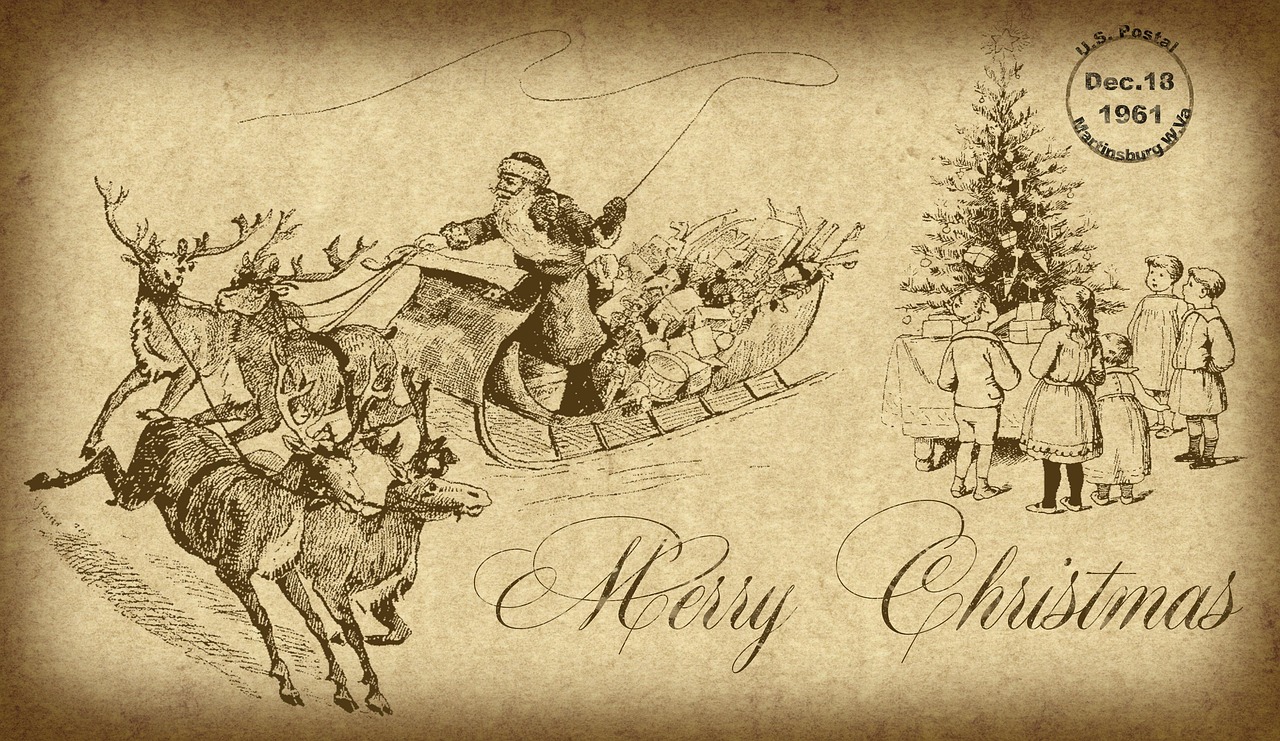
Those Christmas cards…
We send an estimated 900 million to 1 billion Christmas cards in the UK each year. Royal Mail delivers
around 150 million. On average, each person in the UK sends and receives about 17 cards.
This year the final Royal Mail Christmas posting dates are as follows:
Wednesday, December 17th: 2nd Class and 2nd Class Signed For
Friday, December 19th: Royal Mail Tracked 48
Saturday, December 20th: 1st Class and 1st Class Signed For
Sunday, December 21st: Royal Mail Tracked 24
Tuesday, December 23rd: Special Delivery Guaranteed.
(It is best to post as early as possible to avoid the last-minute rush.)
_______________________________________________
These come from the website of The British Christmas Tree Growers Association (BCTGA).
10 Fun Facts about Christmas trees
Even before the time of Christ, evergreen trees were seen in winter as a symbol of fertility.
It was the 16th century monk, Martin Luther, who is credited with the idea of having lights on Christmas trees. He added candles to his tree, to look like stars in a forest.
Windsor Castle got its first Christmas tree in 1800, brought by Charlotte, wife of George III.
It was in 1835 that the term ‘Christmas tree’ was first used in English.
It was in the 1840s, when Prince Albert, consort of Queen Victoria, began bringing trees inside, that led to their popularity throughout the UK.
It was Woolworths who first sold manufactured Christmas tree ornaments – back in 1880.
The tree in London’s Trafalgar Square has been a gift from the city of Oslo, Norway since 1947.
The world’s tallest Xmas tree, at 221ft high, was erected in a Washington shopping mall in 1950.
In a survey of the nation’s favourite smells, real Christmas trees came eighth, just behind the sea, but ahead of perfume.
About five million real Christmas trees are sold in the UK each year.
______________________________________________
Are you dreading some Christmas presents?
Do you expect to like all the presents you will receive this year? Not if last year was anything to go by… in fact, it seems that more than two-thirds of us expect that we will unwrap at least one item that we do not like this Christmas.
What do you do with those weird gifts? One in four of us admit to dumping them – straight into the bin. Yet we are very polite about it – two in five of us pretend delight so that we do not hurt anyone’s feelings. Only one in ten of us is ruthlessly honest, and express disappointment.
A better way of getting rid of unwanted presents is to donate them to charity.
______________________________________________-
Elderly and depressed this winter? Go to church.
Older people with depression can see a bigger improvement in their mental health if they start going to church than if they engage in charity work or sport.
Research from the London School of Economics found that joining a religious organisation is the best way of combatting depression. It may be both that having a faith gives benefit, and also because meeting up with other people of faith gives a sense of belonging. The LSE also found evidence that membership of some political and community organisations may have a poor impact on an older person’s mental health.
_______________________________________

by Tim lenton
Jane Austin - still loved 250 years later.
It was 250 years ago, on 16th December 1775, that novelist Jane Austen (Sense and Sensibility, Pride and Prejudice, Mansfield Park, Emma, Northanger Abbey, Persuasion) was born. Over 30 million copies of her books have since been sold – 7000 in her lifetime.
She was the second daughter and seventh child of the Revd George Austen, rector of the village of Steventon in Hampshire. Two of her brothers became clergymen, two were Admirals in the Royal Navy and the other inherited substantial estates in Kent and Hampshire from a distant cousin. Neither Jane nor her sister Casssandra, with whom she was very close, ever married.
Jane had a sincere Christian faith which deepened as she got older and is reflected in her novels. She had sympathy with hands-on evangelicalism and a desire to abolish the slave trade, which she refers to particularly in Mansfield Park.
She lived at Steventon for 25 years and then moved with her parents and sister to Bath, enjoying holidays in the West Country. Her father died in 1805, and they moved to Southampton and then Chawton in Hampshire, less than 20 miles from Steventon, where they had a cottage on one of her brother Edward’s estates – now a Jane Austen museum. This cottage was where she devoted herself to writing, revising her first three novels and composing another three.
But it was here too that she fell ill and died in 1817 – probably from Addison’s Disease. She had been published only anonymously in her lifetime, and her style was not immediately appreciated, though its comments on the world of the landed gentry, to which she belonged, quickly became popular – as did her wit, irony and her realistic plots.
She is now more popular than ever, with followers known as Janeites and a flourishing Jane Austen Society with worldwide membership, plus numerous film and TV adaptations of her work.
There are some gaps in her private life, mainly because her sister Cassandra destroyed most of her letters. At the age of 20 she seems to have fallen temporarily for Thomas Lefroy, a neighbour who later became Lord Chief Justice of Ireland, but the relationship never developed. The epitaph by her brother James on her tomb in Winchester Cathedral praises the “extraordinary endowments of her mind”.
________________________________________________________
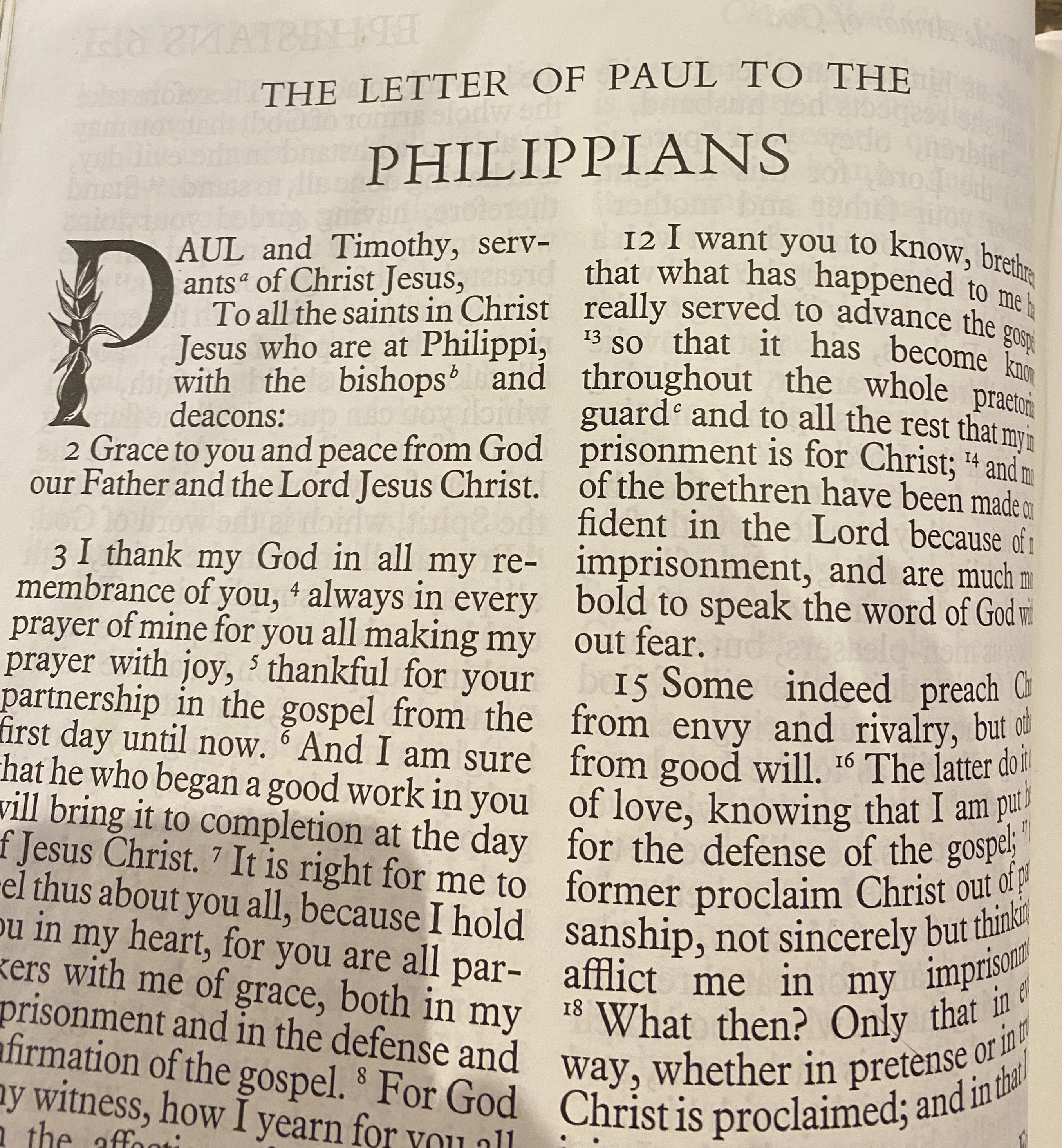
Paul Hardingham continues his series on the books of the Bible, which will run until the end of 2025.
What’s the Big Idea?
An Introduction to the Books of the New Testament: Philippians
This letter was written to Christians in the Macedonian city of Philippi when Paul was in prison, probably in Rome (60-62 AD). His primary purpose in writing was to thank them for the gift they had sent him upon learning of his imprisonment. However, he also uses the letter as an opportunity to report on his situation; to encourage the Philippians to stand firm in the face of persecution and rejoice regardless of circumstances; to exhort the church to live in humility, fellowship, and unity; to commend Epaphroditus and Timothy to them; and to warn them about false teaching. This included Judaizers who were persuading the Philippians to submit to circumcision.
The central message of Philippians focuses on joy (the word occurs some 16 times!). For Paul, joy isn’t simply an emotional response to favourable circumstances. True joy is to be found through a relationship with the resurrected and glorified Christ. Death ceases to be an enemy, because through it we can more fully enjoy the presence of Jesus. This joy is also rooted in an expectation of the return of Jesus, which gives urgency to the task of sharing the gospel. So, Paul begins his letter by thanking the Philippians for their partnership together in the work of the gospel through the offerings they have sent.
Paul also powerfully appeals to the Philippians to be of ‘one mind’ in pursuing humility and unity. He gives the example of Jesus himself ‘who made himself nothing, taking the very nature of a servant’ (2:7) to the point of dying the death of a common criminal. ‘Therefore’, say Paul, ‘God exalted him to the highest place’ (2:9). This ‘Jesus attitude’ is the one that all believers should share.
_________________________________________________
Lester Amann
Micah’s Message – look forward to the child born in Bethlehem
Why is the news so full of depressing stories? Why can’t they report some good news for a change? Indeed, our world is always full of troubles, and we may wonder if better times will ever come.
Similar comments might have been directed at many of the Old Testament prophets who nearly always said negative and gloomy things. The people of Micah’s day had many problems. They were surrounded by warring nations and peace in their time was unlikely.
It was Micah’s task, as God’s messenger, to tell the people how it was and how it was going to be, no matter how painful the facts. Micah was deeply concerned with the social ills of his day and spoke out against false prophets who were leading the people into contrived hopes and errors.
Micah was quite forthright. He announced that God would punish the people for their sinfulness and their enemies would overcome them. Micah came with bad news and there seemed no end to his reprimands and denouncements.
But in the desert was an oasis. Amidst his descriptions of imminent pain and suffering, Micah looked forward to a time of peace with freedom from injustice, fear and war. Micah delivered God’s promise that from Bethlehem there would come a ruler to free them from their oppression. Their Saviour would come. (Micah 5:2)
Of course, Micah’s hearers did not understand about the Babe at Bethlehem, but they were told to stand firm in their faith no matter what troubles or disasters would befall them. They were to look forward to their deliverance, whenever that would be.
Amidst Micah’s attack on the deplorable actions of leaders and the nation’s wrong values and behaviour, he gave hope that God was with them in the failures and difficulties. Only God could take them through their troubles to a place of peace.
Micah’s message still stands for us today. God wants us to mend our wilful ways; to correct bad attitudes and behaviour; to strive for heaven’s values of justice, peace, equality, love and harmony.
As we approach a New Year, we would do well to respond to Micah’s words: What does the Lord require of you? To act justly and to love mercy and to walk humbly with your God. (Micah 6:8)
______________________________________________
by Tim Lenton
The many journeys of the Stone of Scone
Some 75 years ago, on 25th December 1950, the Stone of Scone, the coronation stone of British monarchs, was taken from Westminster Abbey in London by four Scottish students as a home rule gesture. They transported it to Scotland but broke it accidentally. It was later left by them in the ruined Arbroath Abbey, repaired and returned to London to be used in the coronation of Queen Elizabeth II.
From 1996 it was kept in Edinburgh Castle, but last year it was moved to a new museum at Perth – two or three miles down the River Tay from Scone Abbey, where it had been used in the crowning of Scottish kings.
The Stone, also known as the Stone of Destiny, is a block of red sandstone that was taken by Edward I “Longshanks” of England in 1296 and used in the crowning of English monarchs since then. It is still used to crown UK kings and queens – most recently King Charles III in May 2023 – but it has returned to Perthshire for the first time in 700 years, and is now freely available to view there.
An old symbol of Scottish monarchy, the Stone was first recorded as being used in 1249 for the inauguration of the boy-king, Alexander III. It was taken by the English as war loot – a symbol of Edward’s perceived right to rule.
There are various stories about the origins and history of the Stone. One goes back to biblical times, naming it as the Stone of Jacob, taken by Jacob from Bethel as described in Genesis 28 and then removed to ancient Ireland by the prophet Jeremiah. There are also claims that the Stone at Perth is not the original, and many stories of the intricate measures taken to ensure its safety during the war years.
_________________________________________________

David Pickup, a solicitor, considers the legal hazards of daily life in winter.
The legal hazards of life in winter
Lightning and hail, snow and clouds, stormy winds that do his bidding…( Psalm 148:8)
Psalm 148:8)
We are promised a hard Winter this year. The abundance of nuts and berries is supposed to be a sign of bad weather. Whether that is true or not is another question. Supposing we do get ice, snow and more frost. Early one cold morning you get up and go outside to clear a path of snow on your driveway and salt the doorstep. You playfully pick up a handful of snow and throw it carelessly. The car is covered in ice, so you start the engine and leave it running to defrost. You then go inside to warm up.
On your return outside the mail deliverer has fallen over. The car is missing because you had left the keys inside. The snowball you threw broke a neighbour’s window because it had a stone inside. The front door slams shut, and you are outside in your pyjamas, then fall over on the ice which had thawed in the road and then re-frozen. Sounds a Winter nightmare!
What are legal issues?
The Occupiers’ Liability Act 1957 requires occupiers to take reasonable care to ensure visitors are reasonably safe. ‘Reasonable’ is the important word there. You are unlikely to be sued if you clear a pathway through the snow. Visitors and pedestrians are expected to look where they are going, dress appropriately and be careful. If you melted snow and it froze again causing a patch of ice, there might be blame, but even then it is doubtful. If a householder knew about a problem and did nothing again that might lead to a claim. For example, if the postie complained to you the day before your path is treacherous and you did not do anything then possibly to blame, but the post person would know to take care.
It is different on public roads, as under the Highways Act 1980, the council must ensure that safe passage along a highway is not endangered by snow or ice. Councils are required to ensure the public can have safe passage “so far as is reasonably practicable” on roads and pavements. In addition to using gritting vehicles and snow-ploughs to keep roads and pavements free of ice and snow, most councils also provide grit bins, usually located on steep gradients or near sharp bends, so that members of the public can spread grit to reduce the slipping hazard. Not all roads are salted or gritted, and sometimes the weather takes an unexpected turn.
Snowball fights
Court cases involving snowball fights are rare. You must not deliberately add rocks or stones to snowballs carelessly or deliberately. Do not throw snowballs randomly. If you take part in a snowball fight, you are consenting and would expect to be hit and wet with snow.
There was a case in America that involved a snowball. After the New York Jets football game on Seattle Seahawks’ home ground in December of 2008, as the Jets left the field, they were pelted by snowballs from the stands. One fan waved a sign at the departing players. A player, Sean Ellis picked up some snow and threw it at the fan, apparently hitting him in the head or body. Two years later the fan sued the player. You can watch the video on the internet but I have not found out what happened in court. Ellis was fined $10,000 by the NFL for the incident.
What about your car? Arguably an insurance company could refuse a claim on basis the insurer did not take reasonable care to protect their property. And a neighbour could complain if you are outdoors in your nightwear, depending on whether it is decent or not.
This is a light-hearted item and always take care and get proper advice if needed. Look after yourselves and neighbours, particularly in bad weather. Perhaps your church or local council could have a list of owners of all-weather cars that could help.

Safe driving this winter
The temperatures are dropping now, and it is a good idea to nurture your car battery. Cold, damp weather can make it as reluctant as you are to get going in the morning.
The RAC recommends the following to take best care of your battery: Before you switch off your engine at the end of a journey, turn off the lights, wipers and heaters. This prevents any unnecessary drain on the battery next time you start the car.
Check that everything is switched off before your turn on the ignition. Avoid using the heater longer than necessary, as it puts high demands on the vehicle’s battery.
Check that you don’t leave interior lights, satnavs or phone chargers connected.
If possible, park in a garage.
____________________________________________
Struggling to keep up with it all this winter? – you are in royal company
Getting ready for Christmas may be harder for those of us who have reached a ‘certain age’. The sheer physical energy needed for endless shopping in crowds, lifting Christmas decorations out of the loft, setting up the tree, writing cards, driving hither and thither to see all the relatives, attending and giving parties…
If this year you are struggling to simply keep going, you have sympathy from a probably unexpected quarter: the King of England. In a recent visit to open the new Midland Metropolitan University Hospital, the king chatted with a fellow cancer patient and then joked about ageing: “This is the terrible thing, as I’m discovering already, bits don’t work so well, do they, once you get past 70.”
____________________________________________
Men’s curious reluctance to ask where they are going
If you are travelling far this Christmas, pray that your satnav works, or that there is a woman in the car. Research has found that men are so reluctant to ask directions that they waste hours and miles every year. Over a lifetime of travel, it can work out to a wasted journey from Land’s End to John O’ Groats.
Just six per cent of men will ask for help or check a map to avoid unnecessary travel. More than twice as many prefer to wander hopefully until they find their route on their own, regardless of how long it takes them.
Which of course has inspired the joke: Why did the Children of Israel wander in the wilderness for 40 years? Because Moses was a man and wouldn’t ask directions…
_________________________________________
Book Review
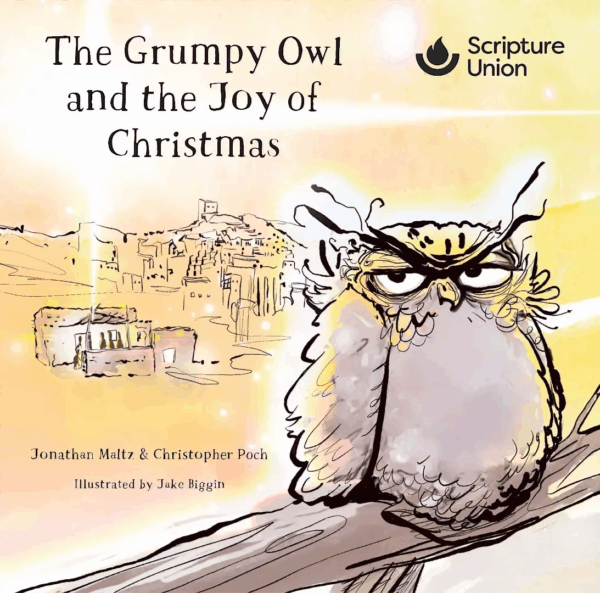
The Grumpy Owl and the Joy of Christmas
By Jonathan Maltz and Christopher Poch, CHP, £5.49
Here is a beautifully illustrated children’s nativity story told from the unusual angle of a grumpy owl who lived in a little old empty barn in Bethlehem.
When a man, a woman and their donkey burst into his barn, making a lot of noise, the grumpy owl decides to fly away to somewhere quiet where he can be grumpy in peace. But can he find such a place, or will he return to his barn in time for a big, not-at-all grumpy, surprise?
___________________________________________________
All in the month of December
It was:
250 years ago, on 16th Dec 1775 that Jane Austen, novelist (Sense and Sensibility, Pride and Prejudice, Mansfield Park, Emma, Northanger Abbey, Persuasion) was born. Over 30 million copies of her books have been sold, 7,000 of them in her lifetime.
175 years ago, on 4th Dec 1850 that William Sturgeon, physicist, electrical engineer and inventor died. He created the first electromagnets and invented the first British electric motor.
150 years ago, on 6th Dec 1875 that Evelyn Underhill, writer and pacifist was born. Best known for her books on religion and Christian mysticism.
75 years ago, on 25th Dec 1950 that the Stone of Scone, the coronation stone of British monarchs, was taken from Westminster Abbey in London by four Scottish students. They transported it to Scotland but broke it. It was later returned to London and used in the coronation of Queen Elizabeth II. Since 1996 it has been kept in Edinburgh Castle, with the agreement that it will be transported to Westminster Abbey when needed for coronations.
70 years ago, on 1st Dec 1955 that African American civil rights activist Rosa Parks refused to give up her bus seat to a white man in Montgomery Alabama. This violated the city’s racial segregation laws, and led to the Montgomery Bus Boycott (5th to 20th Dec 1956) and the birth of the modern American civil rights movement.
65 years ago, on 9th Dec 1960 that the first episode of the TV soap Coronation Street was broadcast on ITV.
60 years ago, on 22nd Dec 1965 that Richard Dimbleby, journalist and radio-television broadcaster, died. The BBC’s first war correspondent, he was one of the greatest figures in British broadcasting history. Father of the TV presenters David Dimbleby and Jonathan Dimbleby.
30 years ago, on 22nd Dec 1995 that the British ‘rogue trader’ Nick Leeson was jailed for six and a half years in Singapore for fraudulent financial dealings which had led to the fall of Barings Bank.
Also 30 years ago, on 8th Dec 1995 that Head teacher Philip Lawrence was stabbed to death outside his west London school while trying to protect a student who was being assaulted by a gang of youths.
Also 30 years ago, on 15th Dec that the European Council announced that the new European currency would be called the Euro.
Also 30 years ago, on 21st Dec 1995 that the city of Bethlehem passed from Israeli to Palestinian control. On 26th Dec Israel also passed dozens of West Bank villages over to the Palestinian authority.
20 years ago, on 27th Dec 2000 that British pharmaceutical companies Glaxo Wellcome and SmithKline Beecham merged, to create the world’s largest pharmaceutical company, GlaxoSmithKline.
10 years ago, on 19th Dec 2015 that Jimmy Hill, football player, manager and host of the BBC football TV series Match of the Day (1973-88) died.
_______________________________________________________
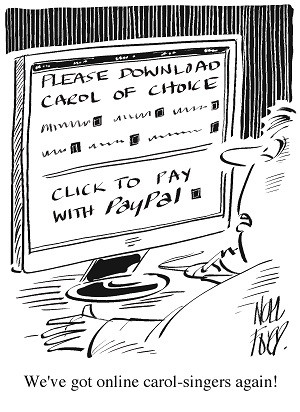

Smile Lines
True story
The nativity play was going as planned and Joseph and Mary were going from ‘house’ to ‘house’ knocking on the doors and asking it there was any room for them.
As they continued to get ‘no room’ answers, a little voice called from the back of the church: “You should have booked!”
**
Who was the Real Virgin?
A ten-year-old, under the tutelage of her grandmother, was becoming quite knowledgeable about the Bible. Then one day she floored her grandmother by asking, “Which virgin was the mother of Jesus? The virgin Mary or the King James Virgin?”
**
What Are the Three Gifts?
While participating in a church Christmas pageant many years ago, I was delighted to be chosen as the narrator. Each rehearsal went off well and then on the night of the show, I announced, in a loud and penetrating voice, the gifts of the Magi as being “gold, Frankenstein and myrrh.”
**
That well known pilot
At Sunday school, the younger children were drawing pictures to illustrate a biblical story. The teacher was startled to see one little boy was drawing an airplane. “This is the Flight into Egypt,” the little boy explained. “See, here is Mary, Joseph and baby Jesus. And this,” he said, pointing to the figure in the front of the plane, “is Pontius. He’s the Pilot.”
**
The Wrong Gift
A young couple began to assemble a special Christmas gift they had bought for their children. They had bought a kit for a tree house, but it didn’t make sense. Then they realised that the materials were for a sailboat, so they wrote to the company to complain. The company’s reply was brief: “While we regret the inconvenience this mistake must have caused you, we are more concerned about the man who is out on a lake somewhere, trying to sail your tree house.”
**
Actual children’s versions of Christmas Carols:
“…sleep in heavenly peas”
“Joy to the world, the Saviour rains!”
“Angels we have heard on high, sweetly singing o’er the plane…”
“While shepherds washed their socks by night…”
“Deck the Halls with Buddy Holly…”
“We three kings of porridge and tar…”
“On the first day of Christmas my tulip gave to me…”
**
Know what?
As we were putting out cookies for Father Christmas one Christmas Eve, I accidentally dropped one. I picked it up and dusted it off before placing it back on the plate. “You can’t do that,” argued my four-year-old. But I assured him that Father Christmas would never know.
He shot me a dubious look. “So, he knows if I’ve been bad or good all year, but he doesn’t know if you dropped his cookie on the floor?”
**
Nativity set
A man visiting his daughter and her family for Christmas was admiring the beautiful nativity set in her hallway. His young granddaughter came up to him, and he asked her if she knew what it was.
“Sure I do,” she replied. “It’s breakable.”
**
When children tell the Christmas story…
~ When the three wise guys from the East Side arrived, they found Jesus in the manager.
~ When Mary heard that she was the mother of Jesus, she sang the Magna Carta.
~ Jesus was born because Mary had an immaculate contraption.
**
Keep it a surprise
Three-year-old Lily was helping her mother wrap a present for her father. While wrapping, her mother told Lily about keeping the present a secret so it would be a surprise. After the present was wrapped, Lily proudly put it under the tree.
When her father asked her if he could shake it and guess what’s inside, she said very seriously, “No, that’s not possible. T-shirts don’t rattle.”
**
Santa’s sleigh
Father Christmas nervously went for his sleigh-driving test. He came rushing back in a thunder of reindeer and pulled up in front of the toy factory. “At last!” he shouted, “No-el plates!’
**
Footballer’s carol
A football supporter’s favourite Christmas song? ‘Yule never walk alone’.
**
Don’t eat
What do you get if you eat Christmas decorations? Tinselitus.
**
Helpers
What do you call Santa’s helpers? Subordinate Clauses.
**
Big part
A little boy rushed home from school: “I got a part in the Christmas play!” His mother asked which part it was. “I’m going to be one of the three wise guys!”
**
At 3pm on Christmas Day
Many people will stop everything at 3pm on Christmas Day to listen to His Majesty’s annual address to the nation. But ever wonder what the King calls his Christmas Broadcast? Could it possibly be ‘The One Show’?!
**
Let’s play
Four-year-old to her two-year-old sister: “Let’s play Christmas. I’ll be Father Christmas, and you can be a present and I’ll give you away.”
**
Stronger
Statistics show we’re getting stronger. 50 years ago, you needed an estate car to hold £50 worth of Christmas presents. 20 years ago, it took two people to carry £20 worth of groceries. Now a five-year-old can do it.
**
Oops!
A vicar gave his daughter a puppy for Christmas. An hour later, he found her in the kitchen, looking sadly at a puddle in the centre of the floor. “Look Dad,” she said, “My pup runneth over.”
**
New Year’s Eve is coming soon…
The bagpipes are the missing link between music and noise. – E K Kruger
The inventor of the bagpipes was inspired when he saw a man carrying an indignant asthmatic pig under his arm. Unfortunately, the man-made sound never equalled the purity of the sound achieved by the pig. – Alfred Hitchcock.
Bring not a bagpipe to a man in trouble. – Jonathan Swift.
**
Weird Christmas
Christmas is weird – at what other time of the year do you sit in front of a dead tree and eat sweets out of your socks?
_______________________________________________
The views expressed in this magazine are those of the contributors and do not necessarily reflect those of St Mary's, it's clergy, the Church of England
or the Editors.



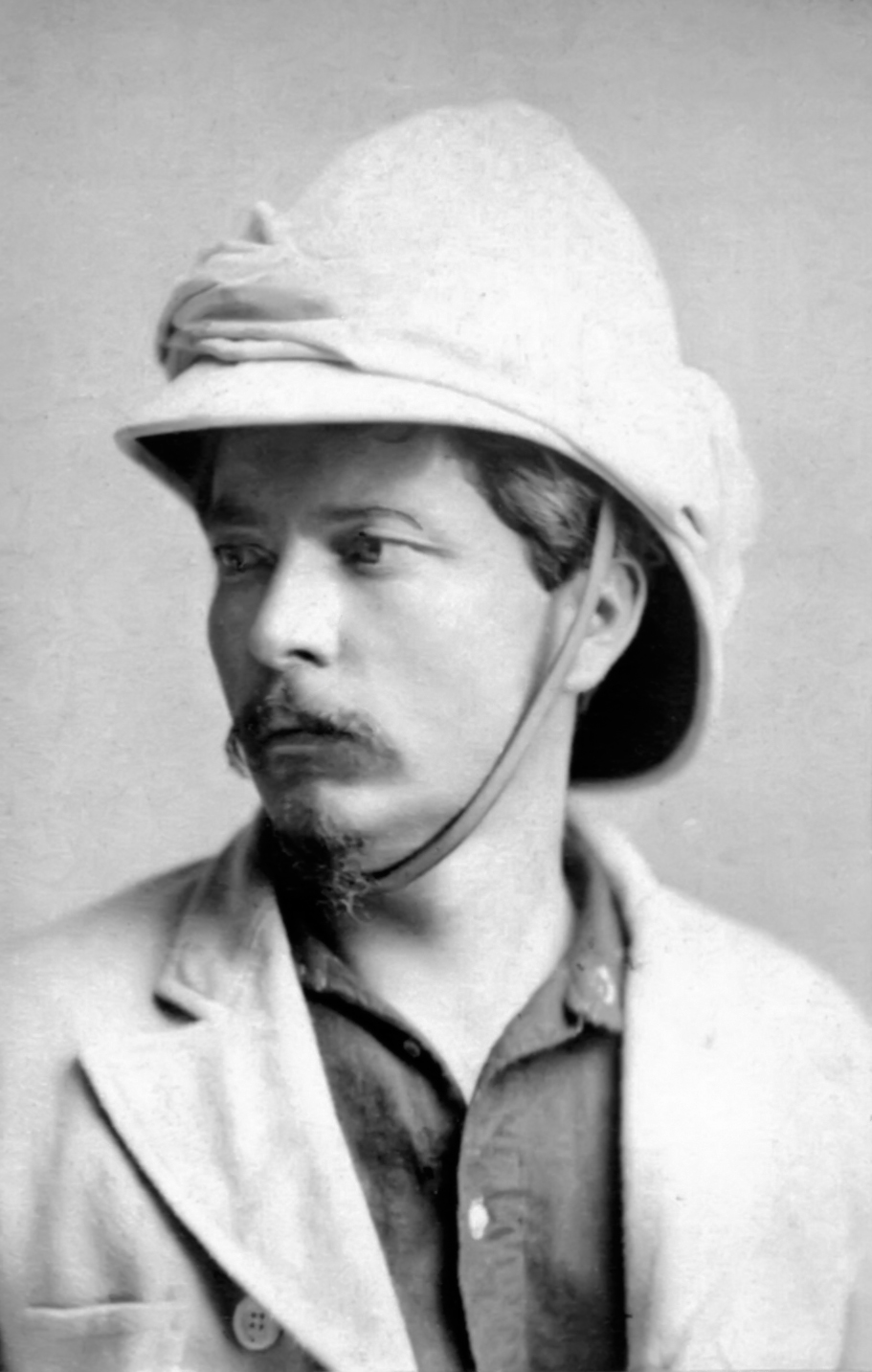
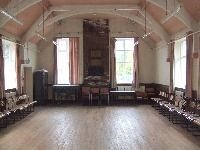
 Click to edit block quote. What quote or client recommendation really sums up your business?
Click to edit block quote. What quote or client recommendation really sums up your business? 
